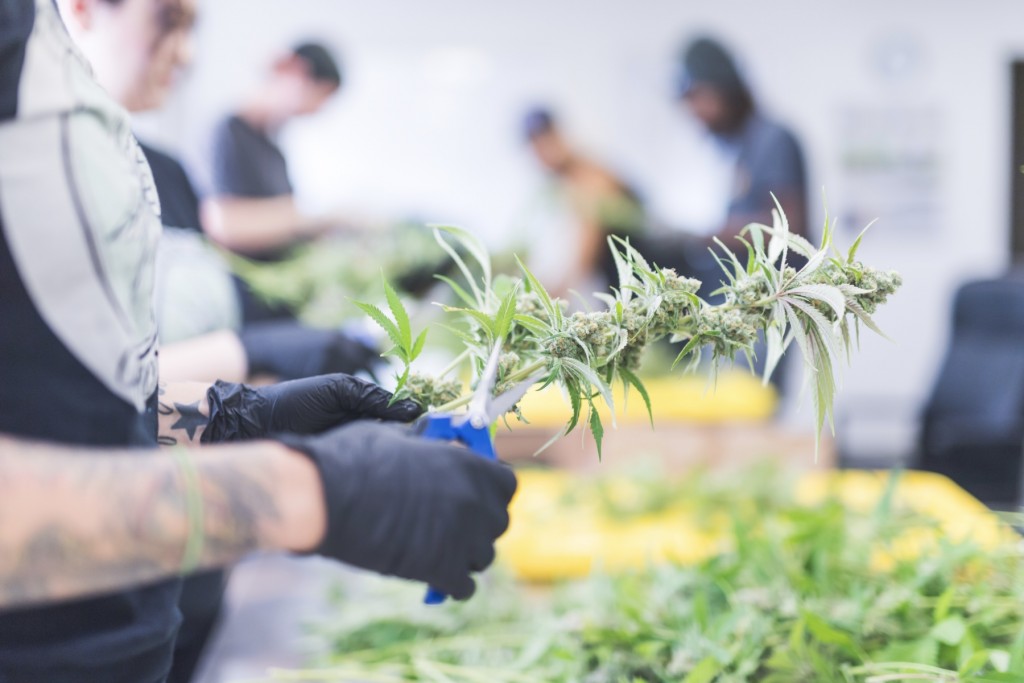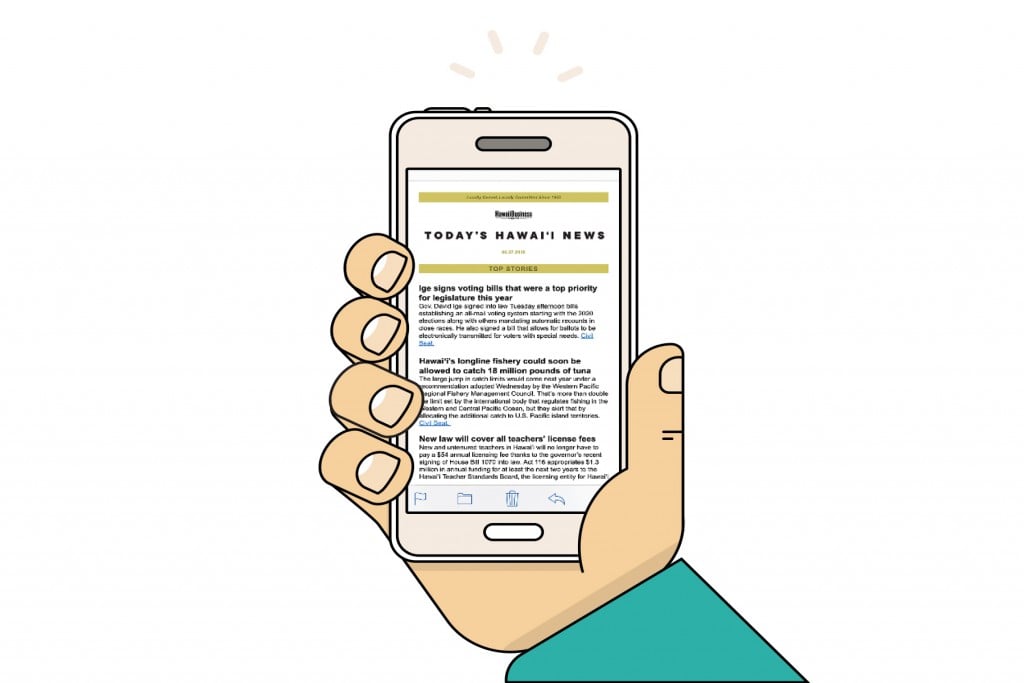Editor’s Note: Is Legal Marijuana Inevitable?

A friend from California brought me a gift: two chocolate bars infused with THC, the substance in marijuana that gets you high and has medical benefits for some people.
Except for the small red “THC!” flag in the bottom right corner, they look like regular high-end chocolate bars.
No, I haven’t tried them – both bars are still on my kitchen counter – but they have the look of inevitability. My guess is that THC products will be legally available to buy for recreational use in Hawaii within four years.
They are already legal for all adults to buy and possess in California, nine other states, the District of Columbia and all of Canada. Other states have decriminalized or made them legal for medical purposes only, as Hawaii has done.
A Civil Beat poll in December 2017 found that 55 percent of local respondents said Hawaii should not legalize recreational marijuana; 36 percent said it should. Unsurprisingly, age was a factor in how people responded.
“Sixty-one percent of registered voters 50 and older don’t want the state to permit recreational use of marijuana, while just 33 percent favor the idea,” Chad Blair wrote. “But exactly 50 percent of voters younger than 50 support it, while 38 percent oppose it.”
Like gay marriage, legalized marijuana generates both ideological and generational divides between conservatives and liberals, Millennials and Baby Boomers. Not everyone falls neatly into those categories but there are clear tendencies.
My friend who brought the THC chocolate bars was born and raised in Hawaii and now lives in Southern California. I agreed with her suggestion that Hawaii is politically progressive like California but socially more conservative. We wondered about the influence of Asian culture on that dichotomy, which the Civil Beat poll bears out: A higher percentage of Caucasians than Japanese in Hawaii favored marijuana legalization.
But age is the more important divide and as the older opponents die – or change their minds, as many did with gay marriage over the years – there will be a tipping point. I suspect a bill to legalize recreational marijuana will get significant debate and consideration in the 2021 state Legislature. It will pass in 2022, with legalization happening on Jan. 1, 2023. Just a guess.
A key factor will be the experience of the legalized states. If the effects are benign or beneficial, opposition will decline. But watch for downsides, like whether the number of deaths from drivers intoxicated by marijuana increases.
One thing that will break down the opposition will be the inevitable “import” of THC products by friends and relatives visiting Hawaii from California, Oregon, Washington and other legal states, and whether you decide to bring back a few bars from your next Mainland visit. The TSA has not made seizure of THC products a priority.
Personal experience will be crucial: One day I will take a bite of those chocolate bars.






